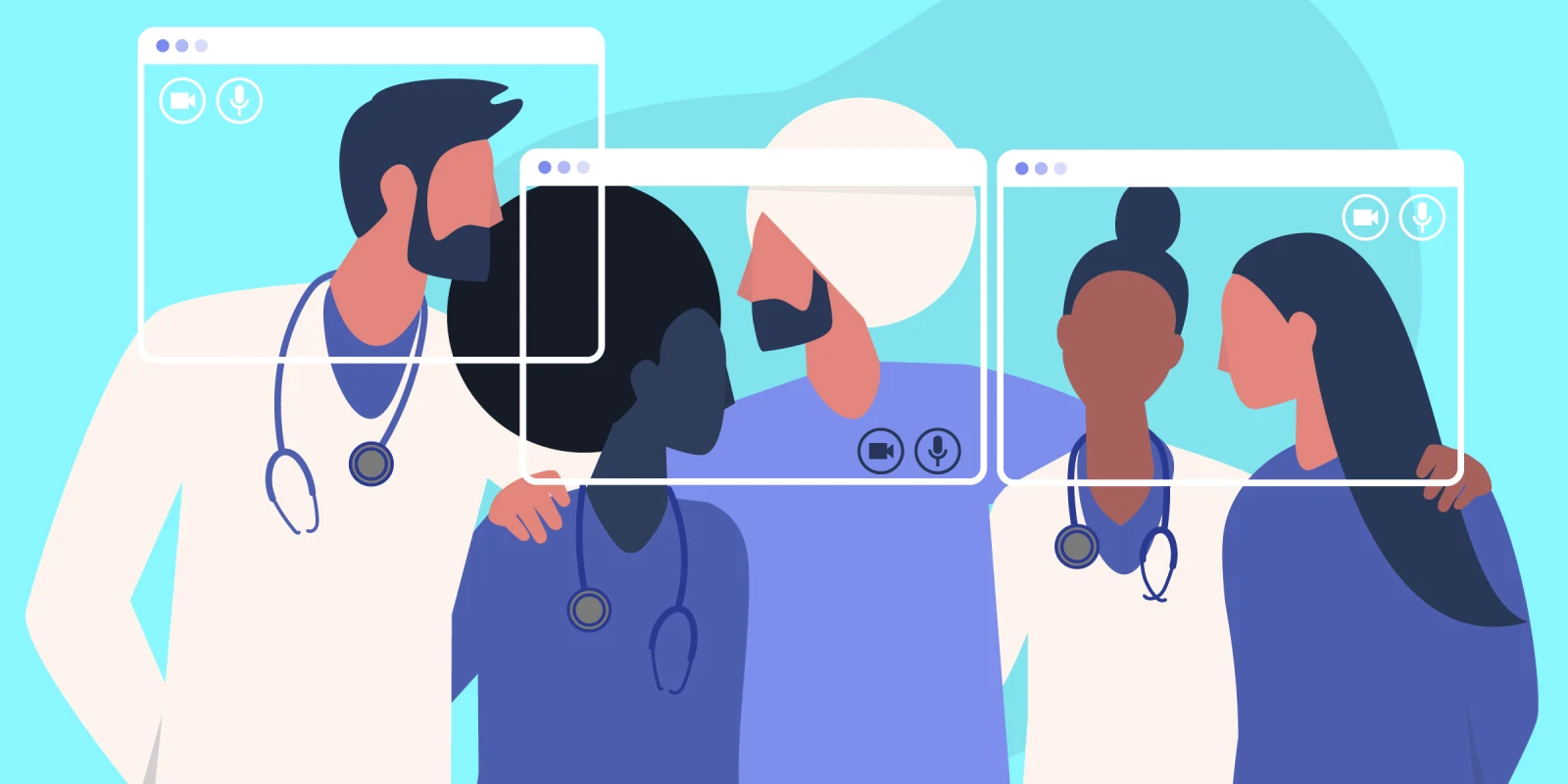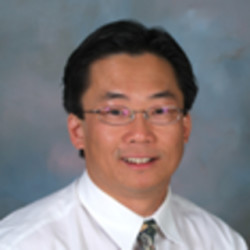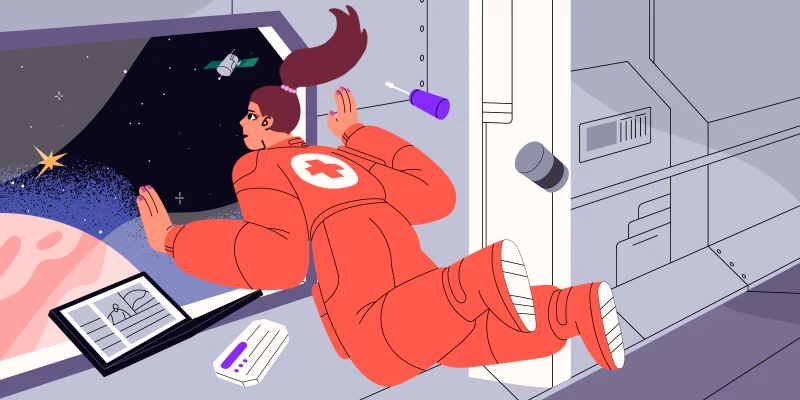When people I know ask me about my career path, I say that it was a slightly zig zag path that was defined by several key intersections. At each key fork in the road, I was lucky to be guided by signposts, my four great teachers: Gerry Miller, my high school guidance counselor; Shirley Tilghman, my college thesis advisor; Marc Coel, my medical school mentor, and Wallace Miller Sr., my residency director. I am grateful to them not only because of the opportunities and advice that they gave me, but even more so because they shared a part of themselves with me, and allowed me to see myself in them.
All throughout my career, I have welcomed the opportunity to redistribute the compassion that my four great teachers gave me when I was a student. For about 10 years or so, I have volunteered for my college alma mater by hosting shadowing experiences for premed students. Usually, I had one or two students a year who would spend a few days shadowing me. However, in the early phase of the pandemic, my alma mater contacted me to ask if I could expand my in-person shadowing to a virtual experience, because all of the students were forced to cancel their plans suddenly. Since my teaching style has always been one-on-one and conversational, I agreed to do virtual internships (I call them “zoomternships”), and suddenly, I went from one or two students to more than a dozen.
For more than two years since, I have continued to host virtual internships, and I have noticed a pattern among the students. While my internship is open to any student, almost every single one who signs up for my program is in a minority group of the student body — a woman, a first-generation college student, a student from a low-income background, people from various racial and ethnic backgrounds, or in many cases, all of the above.
Many students conclude the internship after a few hours of conversation and shadowing, but some have continued their mentoring with me for years. It seems that the more marginalized identities they share with me, the more likely they continue. I have now written many letters of recommendation. Several of the students have been admitted to medical school, while there are others who are no longer interested in a medical career.
More important than demographic background, my “zoomterns” have commonalities with each other and with me that illustrate the challenges of being a premed student from an underrepresented background. First of all, they are under an enormous amount of multifactorial stress. The task of building their “premed CV” heavily exacerbates the potentially crushing pressure of being a college student, the social anxieties of being a minority young adult, the looming cliff of “adulting” after graduation, and for many, financial insecurities.
To my cohort of premed students, the day-to-day experience of being a doctor is a mystery, hidden behind a thick opaque curtain. This is why they almost universally have vague and basic questions like, “What's it like to be a doctor or a medical student?” They lack the basic logistical and financial understanding of being a physician. For example, the understanding that a doctor’s lifestyle is as much or more defined by our employment situation than our specialties, and that the lifestyle parameters are always changing. Some have misconceptions, like all doctors work in hospitals, or that every first year medical student knows exactly what specialty they are going into. Even though these young overachievers have sometimes devoted their entire lives to getting into medical school, they are bewildered by the medical profession. They are jumping off a ledge without being able to see the landing place — a blind leap of faith.
Premed students vastly underestimate the breadth of skill and talent that doctors bring to health care, especially the interpersonal, administrative, cultural, non-STEM related skills. First-generation college students especially tend to cling tenaciously to the “STEM-star, model minority” idea. As a result, they undervalue their own breadth of experience, are less likely to take on leadership positions, and sometimes even choose an academic path that does not completely fulfill them. They are too easily convinced that any minute spent away from biomedically-related academics is wasted, and thus, may undermine the promised liberalness of a liberal arts education.
Premed students in general, and my interns in particular, have an unrestrained overachievers’ mindset. They view life as a string of tests and happiness as a series of accomplishments. In fairness, overachievement is mandatory for underrepresented adolescents to gain upward mobility. One thing I try to encourage them to do is to take some quiet time to reflect and find and practice the things that give them purpose and joy.
An important common thread amongst my interns that exacerbates their challenges is their lack of access and relationships to practicing physicians. I am often the first one they have ever talked to in a colloquial way. Their mental picture of a doctor is usually one who has treated a family member or a doctor on TV. In a recent STAT News article I read on Doximity, LyShayra “Lash” Nolen, a medical student said, “The issue of entering medicine is an issue of access … Because as a first-generation medical student, in order to be competitive to apply to medical school, I had to find shadowing opportunities. But what does that look like when no one in your family or in your circle is in the healthcare field?”
The culmination of barriers and opacities causes my interns to be chronically and acutely susceptible to physician impostor syndrome. Impostor syndrome multiplies the pressure and artificially raises the stakes. Every course, every midterm seems like they are putting their entire future on the line. They are easily led to believe that every other premed student they see around them has their act together. They can often be emotionally isolated.
An important take home message for me is that the most dangerous challenges to my cohort of premed students are not strictly academic. (I am confident that they are all going to be above average physicians.) Their challenges have to do with achieving the cultural and social identity of a doctor. For students of underrepresented backgrounds, they are immediately and subconsciously going to see themselves as off center to the idealized, traditional doctor identity. Their weaknesses are going to be confidence, security, persistence, loneliness, and money. That can lead to stress, impostor syndrome, bewilderment, overconformity, and psychological auto-amputation (marginalizing part of their own identity to fit in).
My interns have taught me a lot, and I am extremely grateful that they have shared their stories with me. I have learned a lot about myself, because every single thing I have described about my premed students was and is absolutely true for me as well. I would now count my interns collectively as my fifth “great teacher.” So I encourage all my fellow doctors, especially those who can speak to the experience of being underrepresented, to find your interns and bring your entire identity, successes, and challenges to the teaching. That way you can make them feel less alone.
What notable lessons have you learned from a mentor or mentee? Share your experience in the comment section.
Jimmy Leung is a musculoskeletal and MRI radiologist with 20-plus years of experience. He grew up in Hawaii, studied and trained for many years on the East Coast, and now works in the Southwest. Dr. Leung is a 2022-2023 Doximity Op-Med Fellow.
Image by nadia_bormotova / GettyImages





